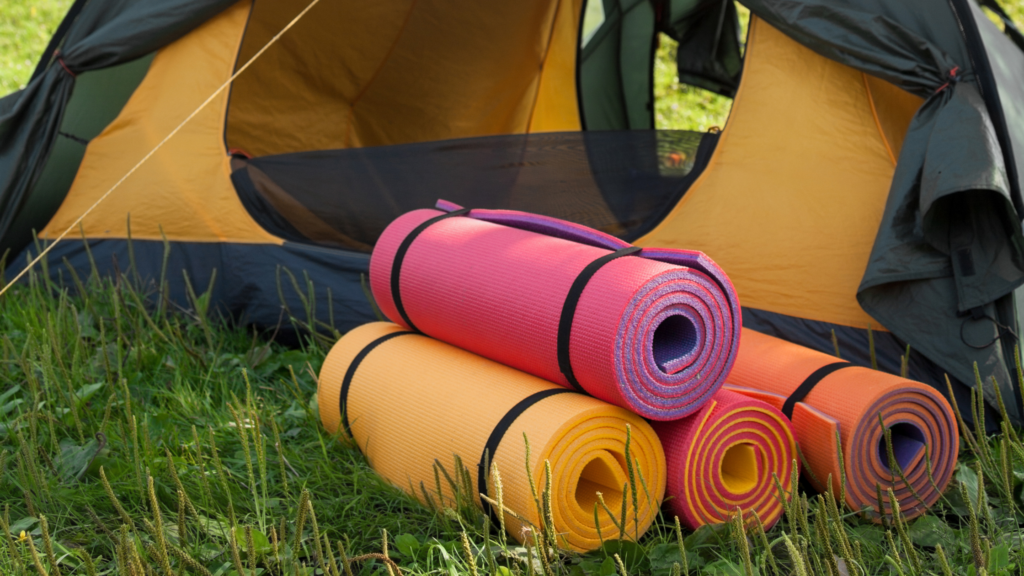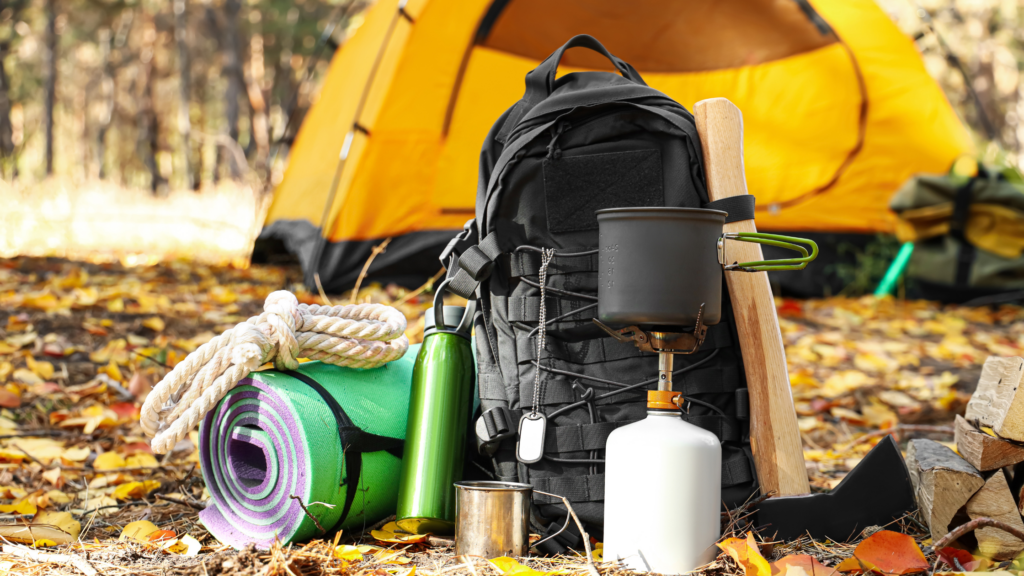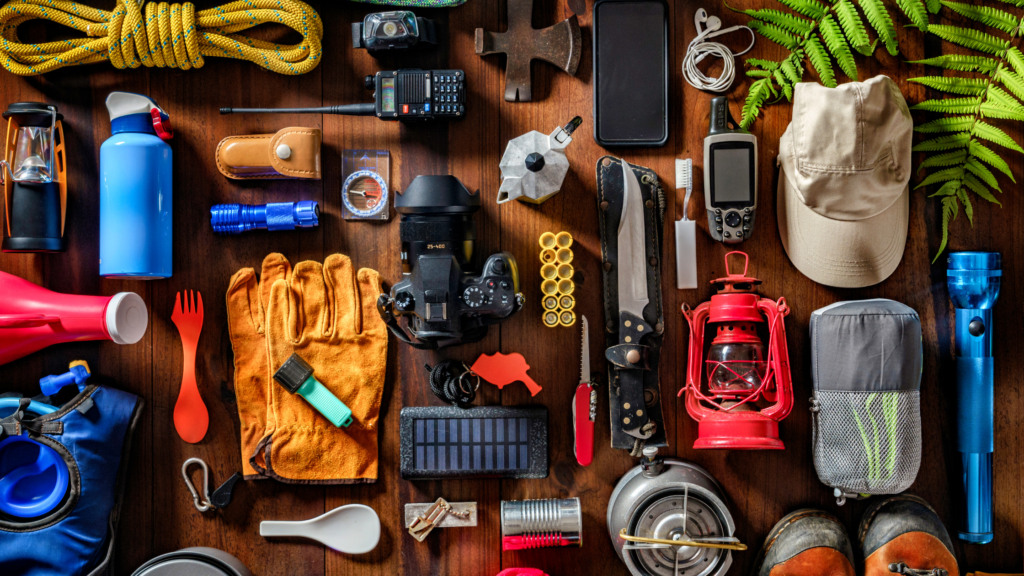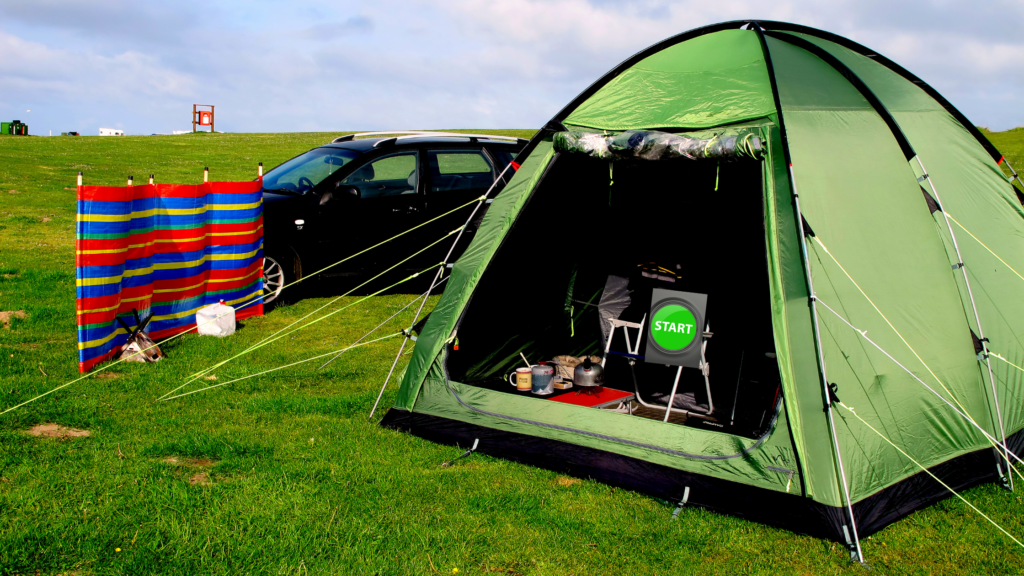Introduction
Feeling the urge for outdoor excitement and craving starry adventures? Well, guess what? Camping is your answer! Imagine it as a super cool adventure where you escape from the everyday chaos and jump into nature’s beauty. Now, here I am, a camping fanatic for a whole 12 years, super excited to guide you through the essential camping stuff. This article is like your secret map, revealing all the tips you need to start your outdoor journey with confidence and a touch of flair!



What This Article Will Help You With:
This article aims to provide you with a comprehensive list of essential camping gear and equipment, ensuring that you’re fully prepared for your first camping trip. Whether you’re a beginner or looking to refresh your camping essentials, this guide has got you covered. We’ll discuss the basics of camping equipment and provide insights into different options available in the market.
Camping Equipment Checklist:
- Tent: Since you will be home away from home, a reliable tent is a must-have. Look for a tent that accommodates the number of campers and provides adequate protection from the elements.
- Sleeping Bag: Choose a sleeping bag suitable for the expected temperature range. Look for features like insulation type, shape, and size to ensure a cozy night’s sleep.
- Sleeping Pad or Air Mattress: These provide insulation from the cold ground and add extra comfort. A sleeping pad is great for backpackers due to its lightweight nature, while an air mattress offers more cushioning for car campers.
- Camp Stove: A portable camp stove allows you to cook meals in the great outdoors. Opt for a stove that suits your cooking style and fuel preference (propane, butane, or liquid fuel).
- Cooking Utensils: Basic cooking utensils like pots, pans, spatulas, and a lightweight camping kettle are essential for preparing meals.
- Food and Water Supplies: Pack non-perishable foods, snacks, and a water filtration system or purification tablets to ensure you have sustenance and clean water.
- Lighting: Headlamps, lanterns, and flashlights are vital for navigating your campsite after dark. Consider solar-powered options for eco-friendly lighting.
- Clothing: Pack appropriate clothing for the weather, including moisture-wicking base layers, insulating layers, waterproof outerwear, and extra socks.
- Footwear: Sturdy hiking boots or trail shoes are essential for exploring the terrain comfortably and protecting your feet.
- First Aid Kit: A compact first aid kit should include bandages, antiseptic wipes, pain relievers, and other essentials for addressing minor injuries.
- Navigation Tools: A map, compass, or GPS device will help you find your way, especially if you’re camping in remote areas.
- Multi-tool or Camping Knife: A versatile tool comes in handy for various tasks like food prep, gear repair, and other campsite needs.
- Personal Items: Don’t forget essentials like sunscreen, insect repellent, toiletries, and prescription medications.
Exploring Different Camping Equipment:
- Tents: Consider factors such as size, weight, seasonality, and setup ease when choosing a tent. Freestanding dome tents are user-friendly while backpacking tents are lightweight and designed for easy transport.
- Sleeping Bags: You’ll find options ranging from synthetic insulation to downfilling. Choose a bag with a comfort rating suitable for the lowest temperature you expect to encounter.
- Camp Stoves: Camping stoves can be classified into propane/butane stoves, liquid fuel stoves, and wood-burning stoves. Select one that aligns with your camping style and cooking preferences.
- Cookware: Lightweight, durable cookware sets with non-stick coatings are popular among campers. Look for nesting sets to optimize space in your backpack.
- Lighting: Headlamps offer hands-free illumination, while lanterns create ambient light for your campsite. Solar-powered lanterns are eco-friendly and reduce reliance on disposable batteries.
In conclusion, embarking on a camping adventure requires careful planning and the right equipment. By following this guide, you’ll be well-prepared to face the great outdoors comfortably and confidently. Remember, starting with the basics is key, and as you gain experience, you can gradually expand your camping gear collection. So pack your bags, venture into the wilderness, and let nature work its magic as you create unforgettable memories under the open sky.

